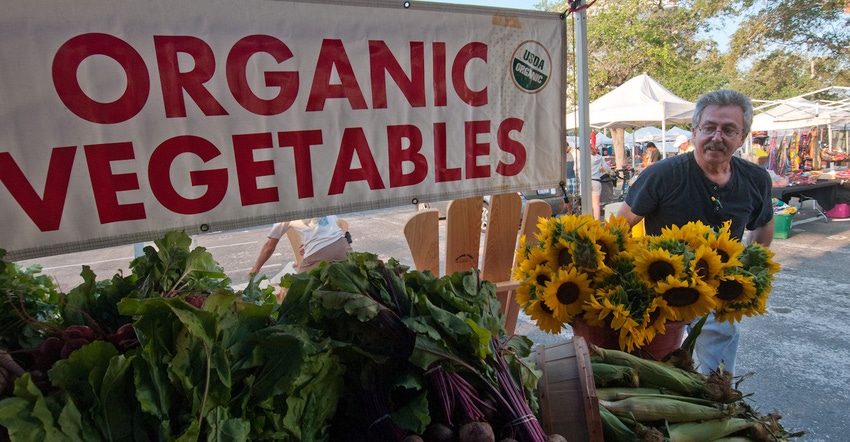USDA’s decision to abandon mandatory organic checkoff motivates Organic Trade Assn. to establish voluntary checkoff for research and marketing.

Earlier this year, the U.S. Department of Agriculture abandoned efforts to establish a new organic checkoff standard to do a “lack of consensus within the organic industry.” Now, the Organic Trade Assn. (OTA) said it is moving forward with its own two-track efforts to establish a voluntary checkoff for the organic segment.
“In today’s political environment, organic companies and stakeholders are increasingly seeking private=sector solutions, and the trade association is taking the lead in supporting these efforts,” OTA chief executive officer and executive director Laura Batcha said. “There is a critical need to educate consumers about organic, for more technical assistance to help more farmers transition to organic and to loudly promote the organic brand. Responding to that need, we are launching a two-track effort to develop a voluntary governance approach and to also advance initiatives that will deliver immediate big wins for the organic sector.”
The trade association has formed a steering committee to coordinate and lead the efforts. The committee is charged with addressing the governance questions surrounding a voluntary program to maximize good participation and decision-making and also to bring together right now multi-pronged private efforts to foster coordinated organic research and promotion. The steering committee established two subcommittees to guide the process: a governance subcommittee and an immediate programming subcommittee.
“Everyone in our organic industry has a stake in eliminating consumer confusion, growing the market and building the organic brand, so we’ll work collectively to ensure the future of organic,” Batcha added.
OTA submitted an application to USDA in May 2015 to consider implementing an organic checkoff program. USDA officially proposed a nationwide organic checkoff program in January 2017, opening the process for public comments. In May, USDA terminated the rule-making process, which OTA said was “despite comments in support of the program from more than 12,000 individuals and businesses, including thousands of organic farmers, ranchers and business stakeholders.”
“The organic community is committed to enabling a sound, resilient and sustainable future, and we look forward to everyone’s participation and influence,” Batcha said. “We want to make sure – through our collective efforts -- that organic flourishes and grows for many years to come.”
To gain the best thinking from stakeholders about some of the critical questions that need to be addressed regarding how to maximize participation in a voluntary program and how to make the best decisions on investments, OTA said the governance subcommittee will be opening up a comment period for interested parties to provide detailed comments in writing to address these key questions. Interested stakeholders should look for the comment period to open in the fall of 2018.
OTA said the immediate programming subcommittee will identify programs to advance organic products and coordinate and fund those programs immediately. These prototype programs will invest in critical needs and serve as proven projects for investment when a formal voluntary program is rolled out.
Already, collaborative programs are being developed and funded. OTA is joining forces with Organic Voices and the group’s “It’s Not Complicated” campaign to fund a nationwide message drive to reduce the confusion about organic. The goal for the campaign is to raise a minimum of $1 million for each of the next two years.
Other projects getting underway will conduct in-depth consumer research on the most effective ways to reinforce the organic brand; advance a portfolio of research to fill in gaps for organic farmers and show the beneficial impacts of organic on environmental and human health, and provide the necessary funding for more organic extension agents across the country.
Members of the governance subcommittee include: Batcha, Kim Dietz, senior manager for environmental, natural and organic policy at The J.M. Smucker Co.; Marty Mesh, organic produce grower and executive director of Florida Organic Growers; Perry Clutts, organic dairy farmer and owner of the Pleasant View organic dairy farm in Ohio; Melissa Hughes, chief mission officer and general counsel of Organic Valley; Gary Hirshberg, co-founder and chief organic optimist at Stonyfield Organic; Melody Meyer, president of Source Organic, and Grant Lundberg, CEO of Lundberg Family Farms.
About the Author(s)
You May Also Like




.png?width=300&auto=webp&quality=80&disable=upscale)
